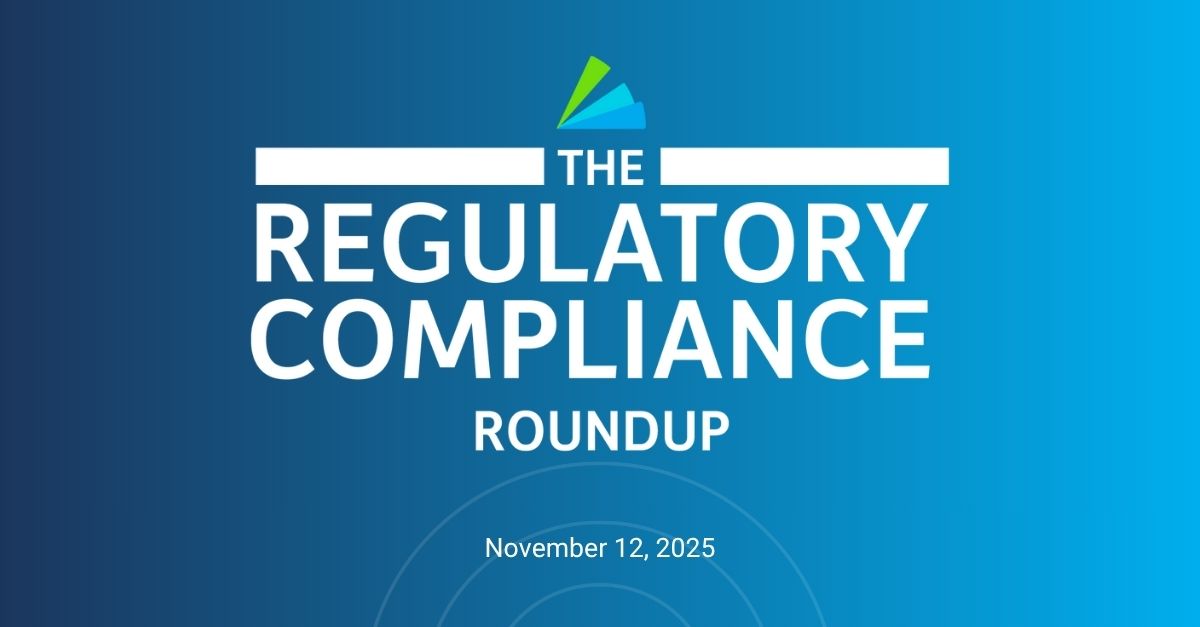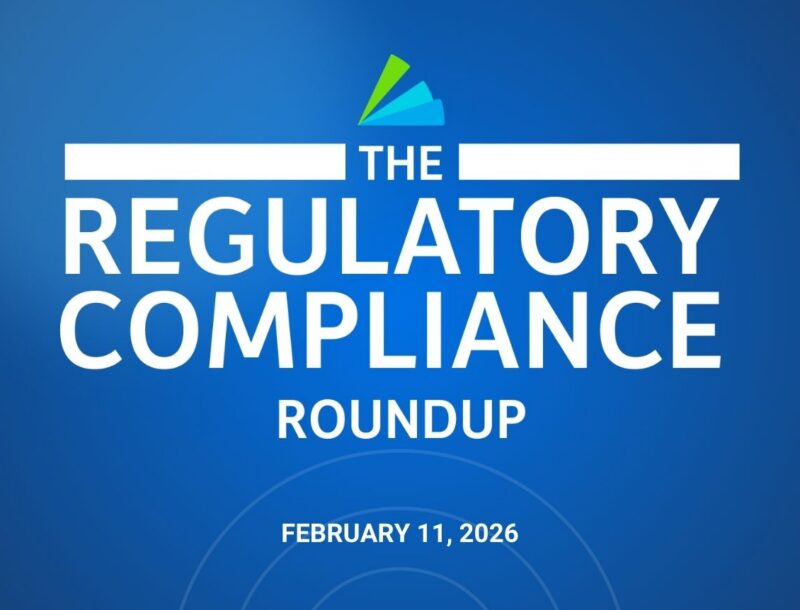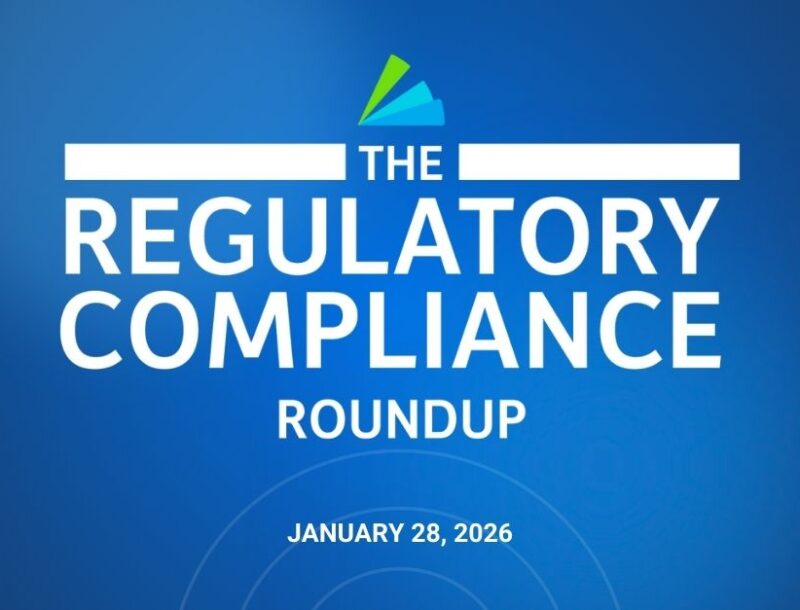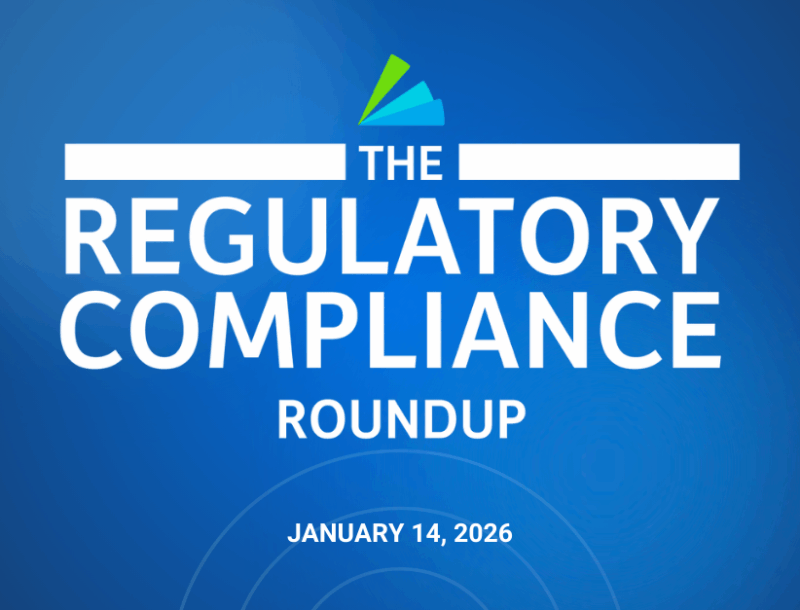The Roundup: Open Banking Stalls, OCC Eyes Fintech Charters, Stablecoin Interest Ban, UK Crypto Regulatory Delays, Rising Mortgage Rates, Debanking, and M&A Support

Welcome to the PerformLine Regulatory Compliance Roundup, home of the latest news, articles, and reports from our industry, curated for you. Let’s get into it.
In this edition: CFPB Open Banking Rule in limbo, Fintech Charters on OCC’s Radar, Support grows for Stablecoin interest ban, Fintechs urge UK to speed up crypto rules, Mortgage rates rise after Fed’s cut, Gould focuses on debanking & big bank mergers
Do you want to be the first to know when the Regulatory Roundup is released? Subscribe to never miss an email and follow us on LinkedIn for even more updates on marketing compliance.
Judge Halts CFPB’s Open Banking Rule
A federal judge has paused enforcement of the CFPB’s open banking rule, siding with banks that argued the regulation was flawed and premature. The injunction remains in place until the agency revises the rule, though it’s unclear if or when that will happen.
With agency leadership facing internal shakeups and potential shutdown, the future of open banking in the U.S. is now in limbo. Fintech groups voiced disappointment, warning the delay could stall consumer access to financial data and innovation. While compliance dates weren’t set to begin until June 2026, the ruling puts development efforts on hold across the industry. Payments Dive
OCC Open to Chartering Fintechs
The OCC confirmed its willingness to grant bank charters to qualified fintechs, including crypto firms, as a way to ensure regulatory oversight and level competition with traditional banks. Speaking at The Clearing House conference, Comptroller Gould emphasized that the OCC’s authority is limited to entities within the regulated system and that compliant nonbanks should be brought into the fold.
“If we don’t have a chartering process, we don’t have the ability to bring companies that want to play by the rules into the regulatory perimeter…and if we can’t bring them into the regulatory perimeter, then we can’t supervise them. And if we can’t supervise them, then we can’t level the playing field.”
These remarks from Gould come amid growing tension between fintech firms seeking national charters and bank trade groups urging regulators to reject those applications or impose stricter standards. American Banker
Banking Groups Back Ban on Stablecoin Interest Under GENIUS Act
The ABA and state banking associations are reaffirming support for the GENIUS Act’s prohibition on interest-bearing stablecoins, warning that allowing interest payments would blur the line between regulated banks and crypto firms.They argued that paying interest on stablecoins poses consumer risks and undermines the law’s intent to treat stablecoins as a payment mechanism, not an investment product.
The groups also voiced concern over DeFi platforms offering returns on stablecoin deposits, calling for stricter enforcement to prevent circumvention of the interest ban. Their message is clear: if stablecoins are to be safe for retail use, they must operate under clear, enforceable guardrails. ABA Banking Journal
Significant Stat:
54%
54% of financial institutions that haven’t issued stablecoins yet, say they expect to start implementing them by 2026.
Fintechs Urge UK to Speed Up Crypto Rules
Frustration is mounting in the UK’s fintech sector as crypto and stablecoin innovators urge regulators to speed up rulemaking. Industry leaders warned that the UK is falling behind jurisdictions like the U.S., EU, and Singapore, risking its status as a global financial hub. At a recent Innovate Finance event, fintech executives called out regulatory delays as a growing reason why firms are considering relocating, despite the UK’s potential to learn from others’ missteps and craft high-quality frameworks. Without swift action, fintech leaders say the UK could continue to lose momentum and market share to more crypto-forward regions. Global Government Fintech
Rate Cuts Aren’t Lowering Mortgages
The Federal Reserve voted for another quarter point rate cut, setting the lending rate to the lowest it’s been in 3 years. Despite the Fed’s announcement, mortgage rates jumped .12% and continue to hold steady at 6.49%.
Homeowners hoping to refinance saw the interest rate cut as potential relief, but it’s a reminder that these cuts mainly affect short-term borrowing. Mortgage rates typically move independently of the Federal Reserve’s decisions and are often shaped by broader market forces. Thirty-year mortgage rates are largely driven by the bond market. Inflation, housing demand, and overall economic conditions also play a major role. Investopedia
Gould Targets Debanking, Supports Preemption & Opens Door to Big Bank Mergers
Comptroller of the Currency Jonathan Gould announced the OCC is actively reviewing examiner behavior and large bank practices related to “debanking”, the denial of banking services to entire sectors. Citing AML/BSA compliance pressures and public refusals to bank certain industries, Gould said the agency will use its supervisory and licensing tools, CRA exam process, and complaint data to surface potential issues.
He also emphasized the OCC’s renewed commitment to federal preemption, warning that its legal strength depends on sustained political support: “If the political consensus erodes over time, preemption will narrow.”
On bank mergers, Gould pushed back on the perception of regulatory resistance, stating the OCC supports legally sound consolidation paths and doesn’t take a default “no” stance. Together, his remarks signal a more proactive and balanced regulatory posture on controversial issues impacting bank operations and expansion. ABA Banking Journal


